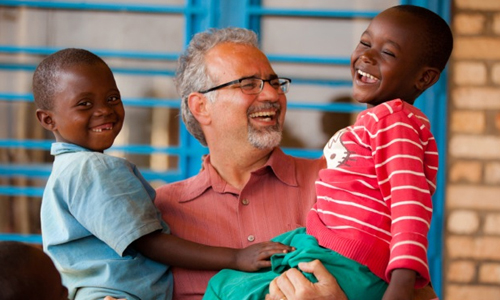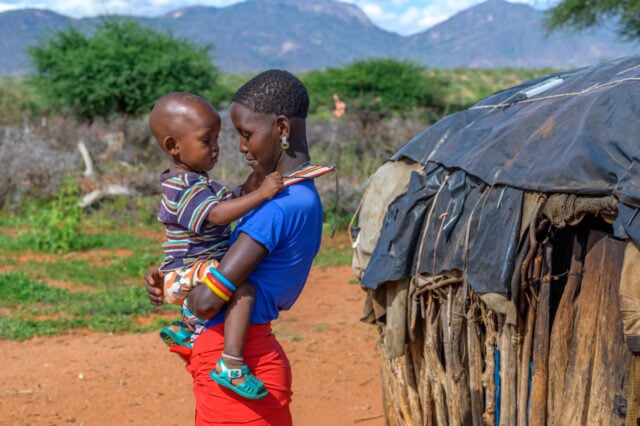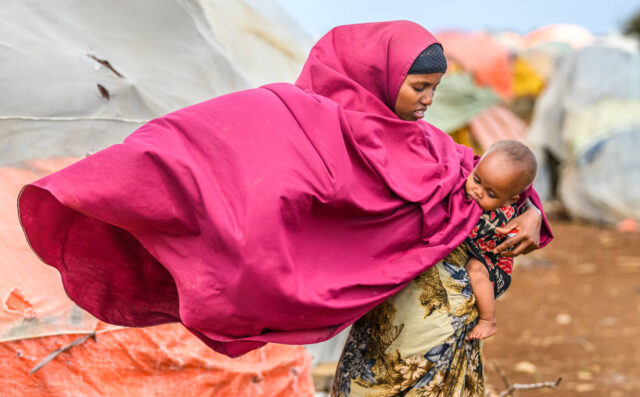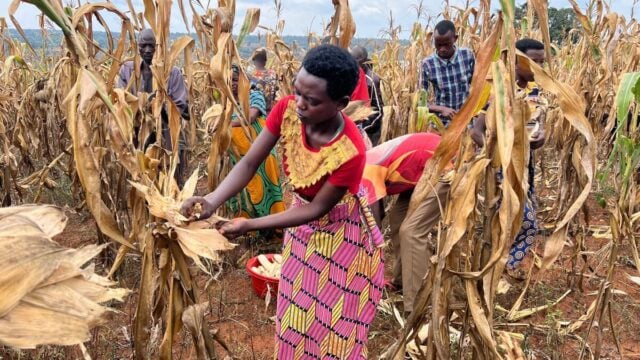Today marks the 19-year anniversary of the beginning of the Rwandan genocide that took the lives of almost 800,000 people in 1994.
World Vision videographer Tom Costanza visited the “Hotel Rwanda” in February and recalls his trip and the tragedy 19 years before.
* * *
About a thousand people crowded about the pool that Sunday … their voices in chorus filled the air. Their hymns rose like great flights of birds above the belt of eucalyptus trees around the hotel and hovered over the neighboring hills.
The novel A Sunday at the Pool in Kigali by Gil Courtemanche paints both grisly and beautiful pictures of the horrors and the heroics that characterized the 1994 Rwandan genocide.
This past Valentine’s Day, I sat by the infamous pool in the capital city of Kigali. The scene referenced above takes place at the Hotel Des Mille Collines.
The pool is pretty much as it was in April 1994 — brimming with blue water, inviting hotel guests for a cool dip. On this afternoon, the hotel staff scurried around, setting up tables for that night’s holiday dinner. The air was cool, the atmosphere calm, the landscape green and lush.
I could only imagine what hotel guests had witnessed 19 years before.
On April 6 of that year, an event began in Rwanda that would shock the world and affect that country for decades to come. Over the next 100 days, nearly 20% of the country’s population — around 800,000 people — would be slaughtered in a brutal genocide that sent millions of Rwandans fleeing to neighboring countries.
The Mille Collines became a temporary haven for about 1,200 Tutsi refugees, whom the hotel’s assistant manager, Paul Rusesabagina, bravely hid.
The refugees survived by drinking water from the hotel pool.
Outside the gates of this four-star hotel was a bloodbath of unimaginable proportions, with women and children dying in the worst of ways. One of those children was a young girl who’d been beaten, struck in the head with a machete, and left for dead.
Her name was Valentine.
Valentine’s story is memorialized in the Kigali Memorial Center, along with the stories of thousands others. Valentine Iribagiza lay among slaughtered bodies in a parish church for 43 days, playing dead, but clinging to life. Somehow she survived.
Thinking of Valentine, on Valentine’s Day, by this particular pool, took me back to a trip to Germany in 1990 and a visit to Dachau concentration camp. Dachau, now a museum, tells the story of another genocide: the Nazi attempt to exterminate the Jews. Near the gate to the camp, I read the inscription on a memorial, in many different languages, using two powerful words:
“Never again.”
On Valentine’s Day, 23 years later, I saw that same message on a bouquet of flowers left on one of the many mass graves surrounding the Kigali Memorial Center: “Never again.”
But in Rwanda, 19 years ago, “never again” had happened again.
Persecution plays a starring role in the world’s sad history. St. Valentine himself was imprisoned for ministering to Christians persecuted by the Roman Empire. It wasn’t until the Middle Ages that February 14 became a day associated with romantic love, a time for mushy cards, chocolates, roses, and gifts.
St. Valentine’s namesake, Valentine Iribagiza, is grateful for the sweet gift of life. “But,” she says, “I’ll never forget and I’ll definitely tell my children about it. It’s a way of fighting those who deny what happened, and it’s important because of that.”
Paul Rusesabagina, whose heroic story inspired the movie Hotel Rwanda, dreamed that the movie might open hearts and minds.
“It is supposed to be a good lesson to the international community,” Paul says. “For them, at least, one day, if there is another such situation, they could say, ‘Let us not make the same mistakes as we did in Rwanda.’”
So far, history has shown otherwise. The mistakes continue. But sitting by the pool on that Valentine’s Day, I prayed that Paul’s dream might yet come true — that “never again” might someday truly mean “never again” — and that for little girls named Valentine, pools like this might only be used for swimming.
Right now, millions of children around the world continue to suffer because of conflict and war.
Give monthly to provide assistance to children affected by war and conflict. Your monthly donation will help provide critical care for children terrorized by war and violence around the world through interventions like trauma counseling, rehabilitation, advocacy, and peacebuilding, as well as nutritious food, clean water, education, safe shelter, and more.
You can also sponsor a child in Rwanda through World Vision. For about $1 a day, you’ll provide a child with access to life-saving basics like clean water, nutritious food, education, healthcare, and more.





Comments